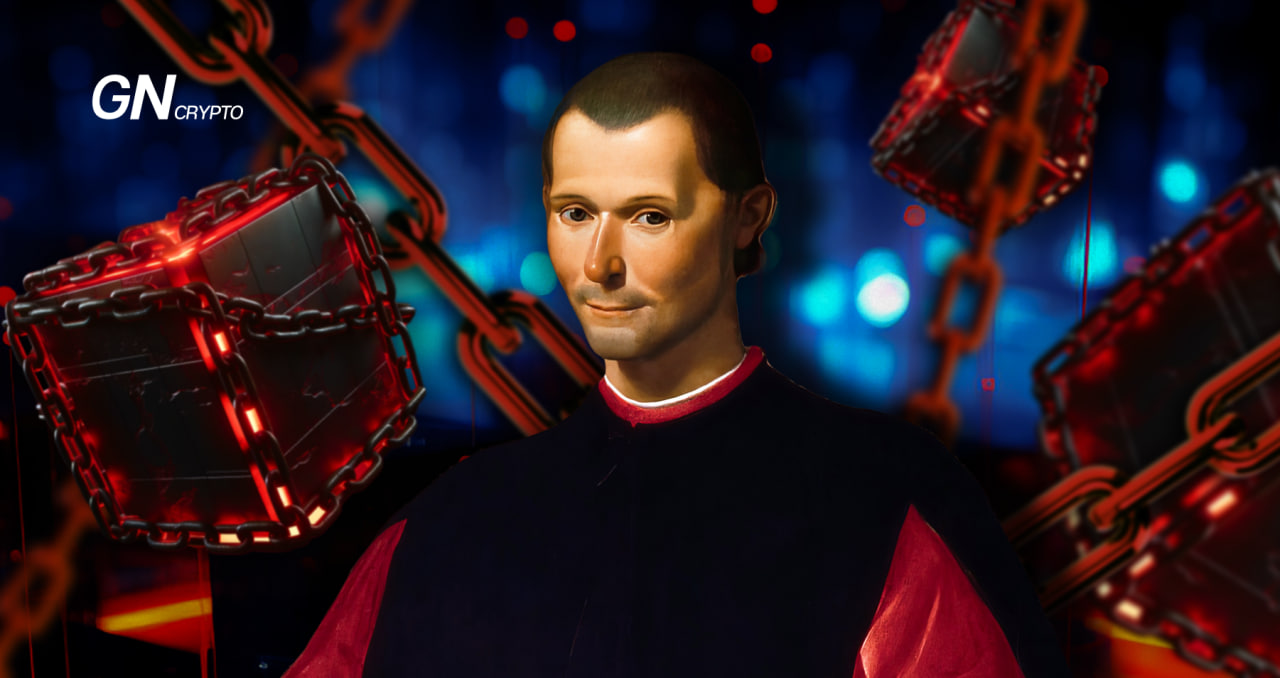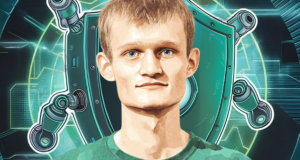Machiavelli in DAO Governance

Every creator of a Decentralized Autonomous Organization (DAO) must not only be a proficient manager but also a political scientist, says Miles Jennings, Chief Legal Counsel at a16z crypto. He refers to the teachings of Renaissance Italian philosopher Niccolò Machiavelli in the context of DAO management.
On this page
Decentralized Autonomous Organizations (DAOs) are a new form of governance system based on principles of democracy and transparency, as detailed in our article. Nevertheless, DAOs also encounter numerous challenges, with the most critical being a lack of coordinated actions, conflicts of interest, and susceptibility to manipulations. Furthermore, it's common in large and investment-worthy projects for less than 1% of participants to hold 90% of the votes, which significantly impacts their decentralization level.
Interestingly, Niccolò Machiavelli's philosophy can provide valuable insights for addressing these issues. Machiavelli, known for his pragmatic approach, believed that power and its subjugation are an integral part of human relations. He advocated for governments to be structured in ways that curb authoritarianism and prevent abuses of power.
DAOs as Miniature Replicas of States
In Web3 systems, which depend on applications built upon a shared blockchain infrastructure, there's a diversity of participants with different motivations. This complexity makes concepts akin to those used in forming effective democratic states relevant.
When applied to DAOs, Machiavelli's principles can be adapted into four key postulates.
1. Minimization of Governance.
Machiavelli advocated for a minimal governmental structure, believing that a large and complex state system inevitably becomes inefficient and corrupt.
In DAO contexts, this translates to designing systems to minimize the number of direct governance participants. Achieving this can involve automating tasks and delegating certain responsibilities to the community of users.
2. Balanced System Architecture.
Machiavelli emphasized the need for balanced governance to prevent power consolidation. He suggested this could be realized through checks and balances that distribute power across various branches of governance.
For DAOs, this means ensuring power is evenly distributed among key stakeholders: major token holders, developers, and general users, whose interests might often clash.
3. Regular Leadership Turnover.
Machiavelli believed in the adaptability of governments to thrive from changes, suggesting that long-term incumbency in leadership roles could lead to stagnation in thinking and flexibility.
Consequently, a DAO should facilitate regular changes in its elected representatives. This can be implemented through mechanisms that allow for the removal of ineffective leaders and the election of new ones via general voting.
4. Enhancing Accountability of Key Figures.
According to Machiavelli, governments should be accountable to their citizens, achievable through laws enabling the populace to hold leaders responsible for their actions.
In decentralized Web3 systems, this principle can be realized through collective voting mechanisms for the recall of leaders.
While these principles can make DAOs more efficient and stable, it's crucial to acknowledge that they may not be universally applicable, especially for organizations needing a more centralized structure for security reasons.
Furthermore, Machiavelli himself was skeptical about autonomous democracy, often viewing nationwide referendums as potentially leading to adverse outcomes. Therefore, it’s natural for DAOs, similar to many democratic states, to tend towards a form of efficient authoritarianism. This tendency might manifest in developer groups becoming dominant forces, not just because of their significant token holdings but also due to their deeper understanding of the vulnerabilities in collective governance.
How are Machiavelli's Principles Being Applied in DAOs?
In his article, Miles Jennings points out several projects as successful examples of implementing Machiavellian principles.
Uniswap, a decentralized exchange protocol, uses a governance system based on representative democracy. Token holders of Uniswap can vote for delegates who then represent their interests on the protocol's board of directors. This approach allows the project to minimize its administrative structure while ensuring a balanced leadership.
Aave, a decentralized lending protocol, employs a governance system focused on incentives. Token holders of Aave are granted the right to vote on various proposals regarding regulation and oversight, as well as to initiate their proposals. This system enables Aave to attract a wide range of stakeholders to participate in its governance.
MakerDAO, a smart contract platform for tokenized projects, operates with a two-tier governance system. The upper tier consists of an oversight board, which includes representatives from all the stakeholders. The lower tier is the executive committee, tasked with the daily management of the protocol. Participants at this second level (even those with a minimal amount of DAO tokens) can make decisions on forthcoming events and vote for new members of the oversight board.
This structure supports MakerDAO in maintaining a regular turnover in its leadership.
Additionally, we recently had the chance to interview Rune Christensen from MakerDAO, where he shared insights on potential improvements in DAO mechanisms and the integration of artificial intelligence.
The content on The Coinomist is for informational purposes only and should not be interpreted as financial advice. While we strive to provide accurate and up-to-date information, we do not guarantee the accuracy, completeness, or reliability of any content. Neither we accept liability for any errors or omissions in the information provided or for any financial losses incurred as a result of relying on this information. Actions based on this content are at your own risk. Always do your own research and consult a professional. See our Terms, Privacy Policy, and Disclaimers for more details.


























